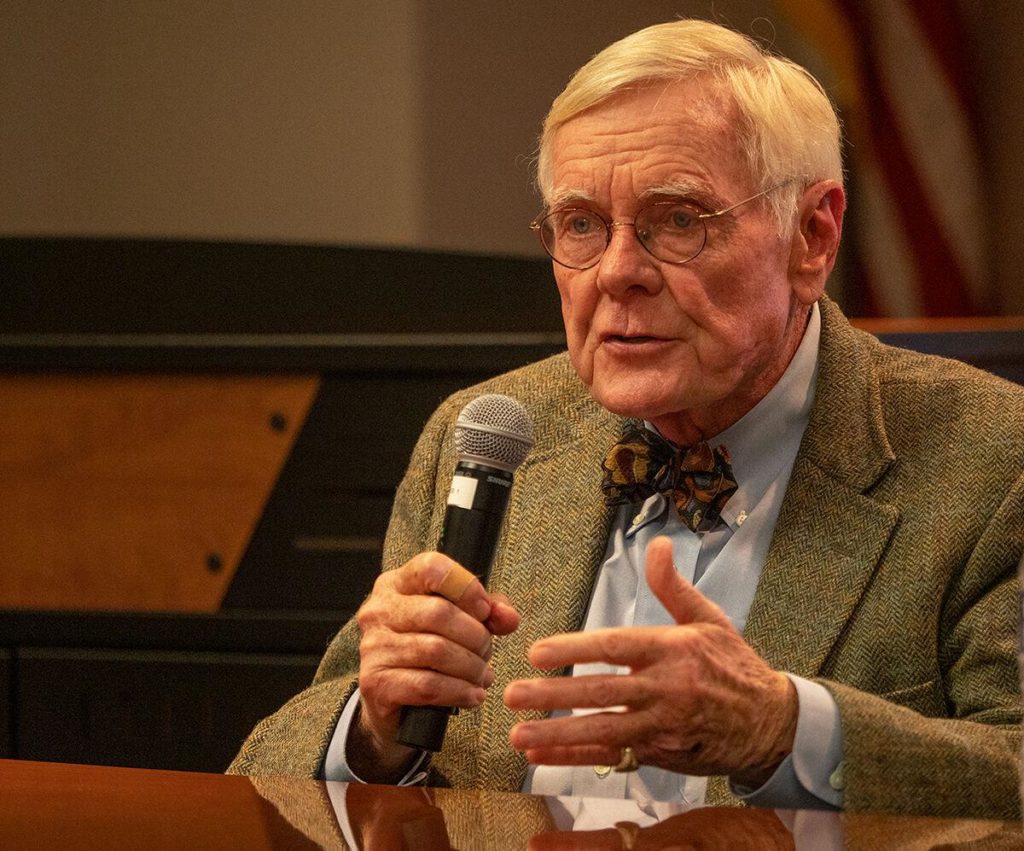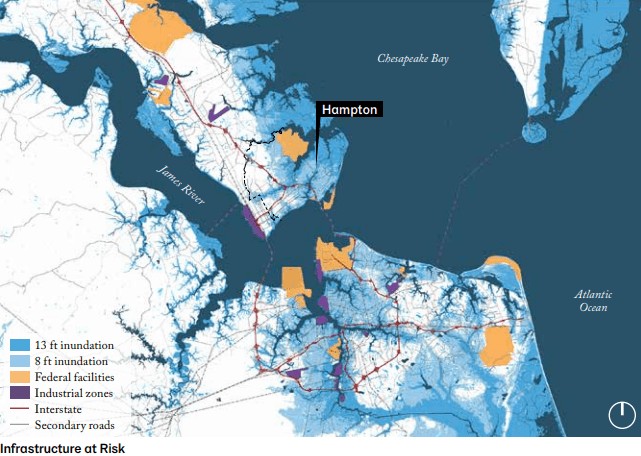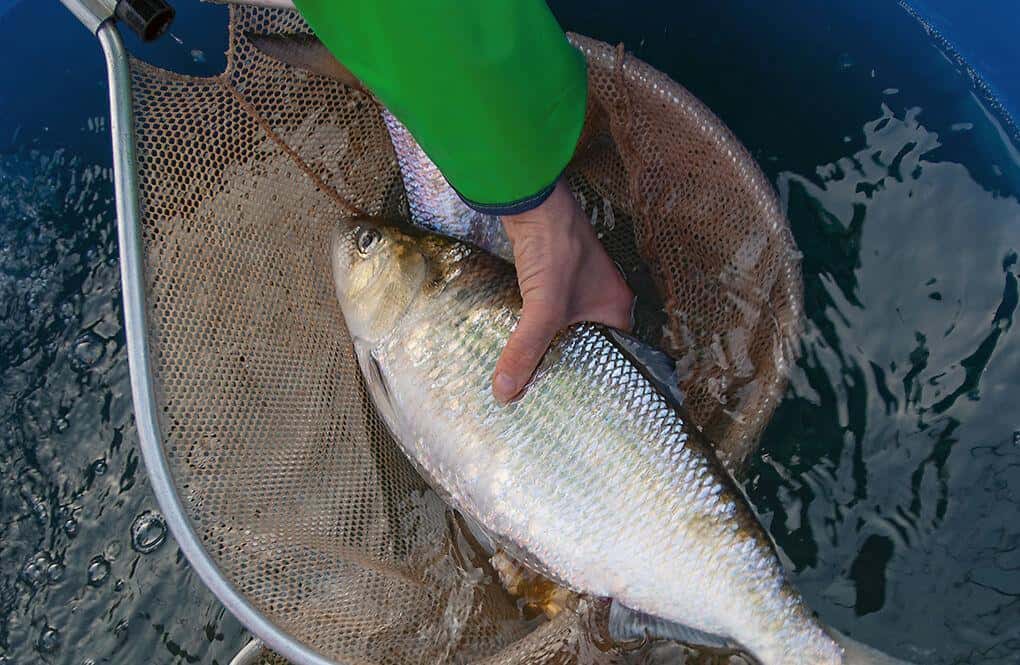By Karl Blankenship, Bay Journal News Service
William Tayloe Murphy, Jr., a towering figure in Virginia’s environmental protection efforts who spearheaded the passage of numerous pieces of landmark environmental legislation, died Sept. 15. He was 88.
Murphy — widely known simply as Tayloe — was an attorney who represented a district in his native Northern Neck from 1982 to 2000 during which time he worked on nearly every piece of significant environmental law that passed.
Among the legislation he championed were the Water Quality Improvement Act, which required 10 percent of any state surplus be used to benefit water quality; the Chesapeake Bay Preservation Act, which increased oversight of land use decisions in areas near the Bay; and restrictions on oil drilling in the Bay.
Murphy later served as Secretary of Natural Resources in the administration of Gov. Mark Warner, where he launched measures to require that nutrient discharge limits be incorporated into wastewater permits and worked to significantly increase spending on clean water programs.
“Virginia has lost a quiet giant in Tayloe Murphy,” said Virginia Gov. Ralph Northam. “Our waters are cleaner today because of the Chesapeake Bay Preservation Act, the Water Quality Improvement Fund and all [of] his work in the legislature and as Secretary of Natural Resources.”
For Murphy, Bay issues were close to home. He lived on a farm overlooking the Potomac River, and shortly after being elected to the General Assembly he was appointed to serve on the Chesapeake Bay Commission, an advisory panel made up of legislators from Virginia, Maryland and Pennsylvania.
While on the commission, he was involved with issues such as the management of striped bass in the 1980s and blue crabs in the 1990s. He successfully led the commission’s efforts to enact a phosphate detergent ban in Virginia.
Murphy was soft spoken, known for wearing bow ties and frequently described as a quintessential Southern gentleman. He promoted civility among colleagues and coworkers, decried rising partisanship and stressed the importance of trying to listen to opponents on issues.
“He would always say in a negotiation that you can get much further with sweetness than you can with acid,” said Ann Swanson, executive director of the Bay Commission. “He would frequently say how important it was to be nice because it is very difficult for your enemy to take you on if you’ve been nice.”
It produced results. Murphy helped to expand the regulation of large poultry operations and enact a law restricting use of toxic chemicals in boat paints that had contaminated parts of the James River. His work is considered the foundation of the state’s water and land protection efforts.
“Though the epitome of the Virginia gentleman, Tayloe was no pushover,” said Roy Hoagland, former vice president of environmental protection and restoration at the Chesapeake Bay Foundation. “A passionate advocate and a savvy negotiator, Tayloe could hold his own with the most vociferous of opponents. Humble, smart, gracious, gentle, kind … he brought out the best in both friend and foe. There will never be another like him.”
Not everything he championed led to success. With concerns rising in the 1990s about the toll that growth and development was taking on Bay water quality, he spent five years developing an act that would increase the slate’s role in managing growth, only to see it quickly killed.
But his willingness to take on tough issues was driven by a guiding principle — the Public Trust Doctrine in common law, which holds that subaqueous lands, the water above them, and the living resources in them are held by the state in trust for the benefit of all people.
“The state is the trustee of these resources and has a fiduciary responsibility to protect them from degradation,” he once said. “To allow special interest groups to damage our water resources—whether it be land developers, a wastewater treatment plant or some other contributor to pollution—is to deny the right to a clean resource to others who should be protected. When elected officials and the states finally take their role as trustees seriously, the Bay will thrive again.”
Murphy also served on numerous boards, including those of Preservation Virginia, the Chesapeake Bay Foundation and the Northern Neck Historical Society.
He is survived by a daughter, Anne Carter Braxton Murphy Brumley, and four grandchildren. Helen, his wife of 63 years, died in 2019.




